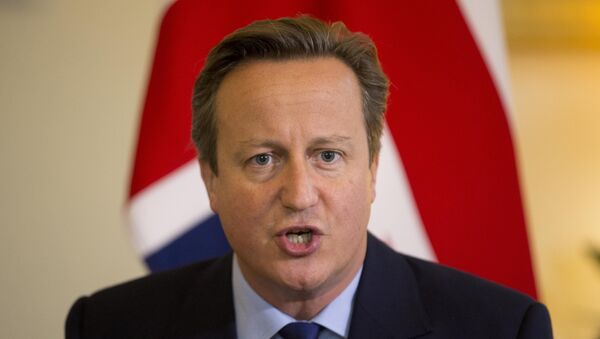British Prime Minister David Cameron and his closest Cabinet allies have enumerated four demands from the European Union to keep the United Kingdom within the bloc, government sources told local media.
"Our EU partners are not thanking us. They think we’re barking mad because the thing they all fear most is a referendum on Europe," a senior minister told The Telegraph late Saturday.
The government’s four-point plan involves the following key demands:
• An explicit pledge by Brussels to keep Britain out of any moves towards a European super-state and exempt it from the EU’s fundamental principle of “ever close union.”
• An “explicit statement” that the euro is not the official currency of the EU, making clear that Europe is a “multi-currency” union.
• A new system to bring power back from Brussels to Britain. This would give groups of national parliaments the power to stop unwanted directives being handed down and to scrap existing EU laws.
• And, finally, a new structure for the EU itself. London wants the 28-nation bloc reorganized to prevent the nine non-eurozone countries being dominated by the 19 member states, with particular protections guaranteed for the City of London.
"Every member state has a ‘veto’ over whether to accept our proposals," one senior figure was quoted as saying.
Although derided by Eurosceptic politicians as insufficient in preserving the UK’s independence, government officials nonetheless defend the four-point plant because of time constraints.
The publication cites Cabinet figures as saying there is not enough time to deliver EU treaty changes before the referendum promised by Cameron to be held by the end of 2017.
Speculation over the pace of negotiations suggested that the so-called Brexit referendum may be held next spring if France and Germany strike a deal with Britain by a December European Council summit. The outlet said, however, a fall 2016 vote is more likely.
A "red line" for smaller EU members is said to be the free movement policy within the bloc’s borders. Hungary, Slovakia and Poland are some of the member states that refuse to consider limiting the number of their citizens who migrate to countries like Britain.
Proponents of Britain’s membership in the EU are expected to launch an "in" campaign on Monday.



